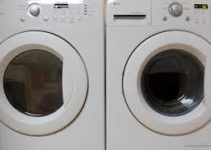As a landlord, it is crucial to focus on rental property repairs because regular upkeep and timely repairs not only ensure the safety and satisfaction of your tenants but also protect the long-term value of your investment.
In this comprehensive guide, we will explore common rental property repairs, discuss whether to opt for DIY or hire professionals, highlight essential tools for repairs, explain how to create a rental property maintenance schedule, offer insights on hiring a property management company in Portland, OR, and provide information on top rental property repair services in the area.
We will also address emergency repairs and the importance of budgeting for rental property repairs. By the end of this guide, you will have a solid foundation for effectively maintaining your investment property.
Importance of Maintaining Rental Properties
Maintaining your rental property is crucial for several reasons. First and foremost, it ensures the safety and well-being of your tenants. Regular inspections, repairs, and maintenance help identify potential hazards and address them promptly, reducing the risk of accidents or injuries on your property. This not only protects your tenants but also shields you from potential liability issues.
Secondly, maintaining your rental property contributes to tenant satisfaction. A well-maintained property creates a comfortable and pleasant living environment, which is more likely to attract and retain high-quality tenants. When tenants feel that their needs are being met, they are more likely to renew their lease agreements, reducing turnover rates and vacancy periods.
Lastly, regular maintenance helps preserve the long-term value of your investment. A well-maintained property is less prone to significant damage or deterioration, which can be costly to repair. By investing in preventive maintenance and promptly addressing repairs, you can avoid costly major repairs down the line and protect the overall value of your rental property.
Common Rental Property Repairs
Rental properties require various repairs over time. Understanding and addressing these common repairs promptly can save you time, money, and headaches in the long run. Some of the most common rental property repairs include:
1. Plumbing Issues: Plumbing problems, such as leaks, clogged drains, or malfunctioning toilets, are common in rental properties. Promptly addressing plumbing issues is essential to prevent water damage and mold growth, which can be detrimental to your property and your tenants’ health.
2. Electrical Problems: Faulty wiring, malfunctioning outlets, or circuit breaker issues are potential electrical problems in rental properties. These issues pose safety risks and should be addressed by a qualified electrician to ensure the safety of your tenants.
3. HVAC System Maintenance: Regular maintenance of heating, ventilation, and air conditioning (HVAC) systems is crucial for optimal performance and energy efficiency. Dirty air filters, malfunctioning thermostats, or worn-out components can negatively impact the comfort of your tenants and increase utility costs.
4. Appliance Repairs: Rental properties often include appliances such as refrigerators, stoves, dishwashers, or washing machines. These appliances may require repairs or replacements over time. Promptly addressing appliance issues ensures the convenience and satisfaction of your tenants.
5. Structural Maintenance: Regular inspections for structural issues, such as roof leaks, foundation cracks, or deteriorating siding, are essential for maintaining the integrity of your rental property. Timely repairs prevent further damage and protect the safety of your tenants.
DIY vs. Hiring Professionals for Rental Property Repairs
When faced with rental property repairs, landlords often find themselves torn between handling the repairs themselves or hiring professionals. While DIY repairs can save money, they may not always be the best choice for every situation. Here are some factors to consider when deciding between DIY and professional repairs:
1. Skill and Experience: Assess your skills and experience with the repair needed. If you have the necessary expertise and confidence to handle the repair effectively, DIY may be a viable option. However, for complex repairs or those requiring specialized knowledge, it is generally best to hire professionals to ensure the job is done correctly.
2. Time and Availability: Consider the time and availability you have to dedicate to the repair. DIY repairs can be time-consuming, especially if you have limited experience or a busy schedule. Hiring professionals can save you time and allow you to focus on other aspects of property management.
3. Safety Concerns: Some repairs may involve potential safety hazards, such as electrical or structural issues. If you are not comfortable or familiar with handling such repairs, it is crucial to prioritize the safety of yourself and your tenants by hiring professionals.
4. Cost Considerations: While DIY repairs may seem cost-effective initially, it is essential to consider the long-term implications. If a repair is not done correctly, it can lead to further damage or the need for professional intervention later, resulting in higher costs. Assess the complexity of the repair and weigh the potential risks and benefits of DIY versus professional repairs.
In conclusion, the decision between DIY and professional repairs depends on factors such as skill, time availability, safety concerns, and cost considerations. Assess each repair on a case-by-case basis to determine the best approach for maintaining your rental property effectively.
Essential Tools for Rental Property Repairs
Regardless of whether you opt for DIY or professional repairs, having the right tools is essential for efficient and effective maintenance of your rental property. Here are some essential tools every landlord should have:
1. Basic Hand Tools: A set of basic hand tools, including screwdrivers, pliers, wrenches, hammers, and tape measures, is a must-have for any landlord. These tools allow you to handle a wide range of repairs and maintenance tasks.
2. Power Tools: Power tools, such as a drill, circular saw, or jigsaw, can significantly speed up repairs and make certain tasks more manageable. Investing in a quality set of power tools can save you time and effort when tackling repairs.
3. Plumbing Tools: For plumbing repairs, having tools such as a pipe wrench, plunger, or drain snake is essential. These specialized plumbing tools can help you address common plumbing issues effectively.
4. Electrical Tools: Electrical repairs may require tools such as wire strippers, voltage testers, or circuit testers. It is crucial to have these tools if you plan on handling electrical repairs yourself.
5. Safety Equipment: When performing repairs, it is essential to prioritize safety. Safety equipment, including gloves, safety goggles, and a fire extinguisher, should be readily available in your toolkit.
Having these essential tools on hand allows you to address minor repairs promptly and efficiently. For more complex or specialized repairs, it is still advisable to hire professionals who have the necessary tools and expertise.
Creating a Rental Property Maintenance Schedule
Creating a rental property maintenance schedule is a proactive approach to ensure that regular inspections, maintenance tasks, and repairs are not overlooked. By implementing a structured maintenance schedule, you can stay on top of maintenance needs and address them before they become major issues. Here are steps to create a rental property maintenance schedule:
1. Conduct Property Inspections: Start by conducting a thorough initial inspection of your rental property to identify any existing issues or areas that require attention. Document your findings and create a checklist to guide future inspections.
2. Determine Maintenance Tasks: Identify the regular maintenance tasks needed for your rental property, such as cleaning gutters, changing air filters, or inspecting smoke detectors. Consult manufacturer recommendations and industry best practices to ensure you cover all necessary tasks.
3. Set Frequency and Timing: Determine the frequency at which each maintenance task should be performed. Some tasks may be monthly, quarterly, semi-annual, or annual. Consider the specific requirements of your property and create a schedule that is realistic and manageable.
4. Assign Responsibility: Clearly define who will be responsible for each maintenance task. If you have a property management company, they may handle some of the tasks. For tasks assigned to tenants, provide clear instructions and guidelines to ensure compliance.
5. Document and Track: Create a centralized system to document and track all maintenance tasks. This can be a physical binder, a digital spreadsheet, or property management software. Regularly update the schedule and document completed tasks for future reference.
By following a rental property maintenance schedule, you can stay organized, prevent issues from escalating, and ensure that your property remains in good condition. Regular maintenance also demonstrates your commitment to providing a safe and comfortable living environment for your tenants.
Hiring a Property Management Company in Portland, OR
For landlords in Portland, OR, managing rental properties can be a demanding task. If you find yourself overwhelmed by the responsibilities of property management, hiring a property management company in Portland may be a wise decision. A property management company can handle various aspects of property management, including repairs, maintenance, tenant screening, rent collection, and legal compliance. Here are some benefits of hiring a property management company in Portland, OR:
1. Expertise and Experience: Property management companies have extensive knowledge and experience in managing rental properties. They are well-versed in local laws and regulations, tenant screening, and handling repairs and maintenance effectively.
2. Time and Stress Management: Hiring a property management company allows you to free up time and reduce the stress associated with property management tasks. They handle tenant inquiries, emergency repairs, and administrative duties, allowing you to focus on other priorities or enjoy personal time.
3. Tenant Retention: Property management companies excel in tenant retention strategies. They have systems in place to ensure tenant satisfaction, timely repairs, and efficient communication. Happy tenants are more likely to renew their leases, reducing turnover and vacancy periods.
4. Network of Professionals: Property management companies have established networks of reliable and trusted contractors, vendors, and repair services. They can quickly and efficiently address repair needs, ensuring quality work and competitive pricing.
When hiring a property management company, be sure to research and interview multiple companies to find the best fit for your specific needs. Consider their reputation, experience, services offered, and fees. A well-chosen property management company can streamline your property management process and maximize the return on your investment.
Ready to take your rental property to the next level? Our team will save you the time, money and hassle of managing your rental property yourself.
Learn more about our professional property management services by clicking here to connect with us online.








